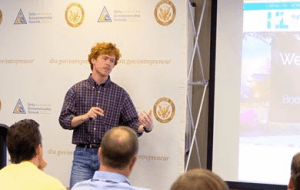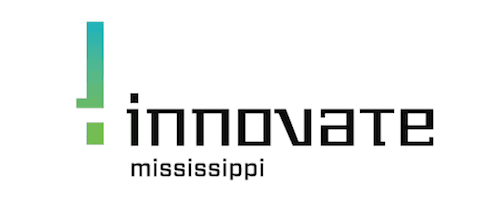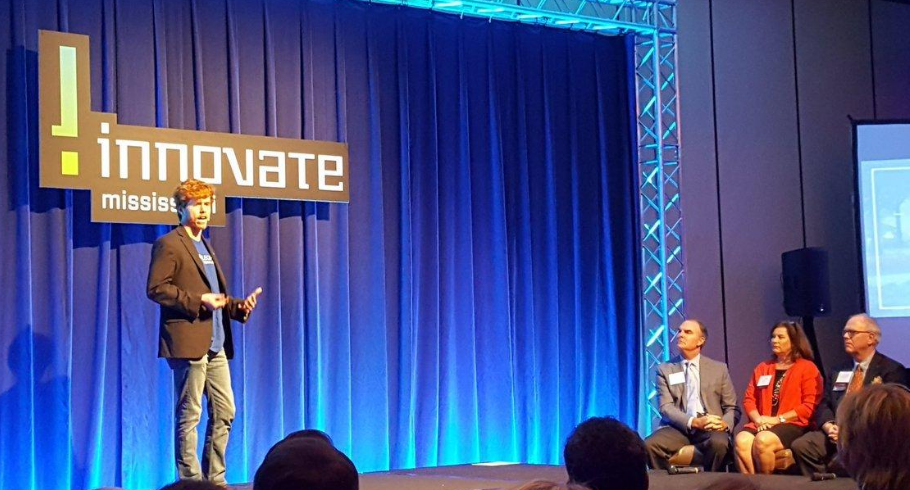Even after Collegiate Tutoring won the New Venture Challenge in 2017, CEO Lee Ingram found himself deciding to pivot with his startup. While the company still does fundamentally the same thing—connecting college students with tutors to help them learn important concepts and improve their grades—the customer that Ingram now focuses on has shifted.
Where it once seemed his customers would be individual students working to find tutors to help them through classes, using his website to connect the students to tutors a little like a dating service, he now increasingly envisions Greek organizations—sororities and fraternities—as his primary customer. These organizations are powerful institutions at the University of Mississippi and other Southeastern Conference (SEC) universities where Collegiate Tutoring intends to grow, and, it turns out, they may be very willing customers for services that he offers.
“The reason we’re focusing on Greek organizations is that they already have the structure to them,” Ingram said. “It was a defining moment for me as an entrepreneur when I realized, yes, we’re helping students and the business is running, but something is missing. The epiphany was the Greek organizations were where the real value could be.”
In fact, he’s whittled the customer profile down even further, focusing on a particular individual that you’ll find in most Greek chapters—the academic chair or scholarship chair. This is usually a student volunteer who is responsible for helping other members of the fraternity or sorority pass their classes and improve the GPA of their members. These chairs are customers with a distinct “pain point,” according to Ingram, and his company is now focused on building a product that makes their lives much easier.
“They were excited to have access to the tutors and the support—I like working with them and helping with strategies to boost their chapter’s GPAs,” Ingram said of the academic chairs. “One of the sororities we’ve worked with for three years. I know how to empower them to do their jobs and make it important.”
“Their role used to be buying study snacks and requiring study hours; now they can set up tutoring sessions for groups of their members with Collegiate Tutoring. We offer sessions that are both chapter-funded and member-funded. With our platform, we’re equipping them with so much more than they had,” he said.
Ingram notes that prior to this pivot, he was “innovating in a vacuum.” He had experience as a tutor himself—that’s why he launched the service in the first place. So, he felt he was an expert on what the customer wanted. He says now that he learned the “hard way” that building features that people don’t use isn’t the best way to develop a software product.

He has a number of academic chairs that are now helping him build the new product. He says he loves product design and has ideas for features, but he wants to make sure that his customers want those features.
“I let them lead,” he said. “It’s very simple—for an academic chair, they can create the chapter’s organization, enter a little bit of data, set a budget for academics, invite their chapter’s members. We solved a big problem in that the chapter will fund some tutoring but not all of it; our platform can facilitate payment from the member or from the chapter… it can cover one-on-one or group sessions.”
Academic chairs get a dashboard where they can see which members are getting tutoring and how they’re doing with a given tutor. Now, a position that was underserved and sometimes undervalued within a chapter is given the tools to have a serious impact on the lives of the chapter’s members.
Ingram says that winning the New Venture Challenge in the Fall of 2017 (in the student category) was great—it came with a little bit of money, but also more access to the Innovate Mississippi team. Ingram says he feels connected to Tony Jeff and Tasha Bibb, and has even been invited to speak to the Mississippi Coding Academy coders and to 1 Million Cups in Jackson.
“They’re a good place to go when I’m getting big-headed,” Ingram said. “They bring me back to reality and they’ll ask the tough questions.”
He’s recently finished a proposal to pitch the Mississippi Seed Fund, where he’s hoping to raise additional capital for the business. He says he’s relied on the Innovate teams as mentors through that process as he’s seeking to grow the business.
Ingram also says he’s excited to be running a Mississippi-based company—he grew up in Mississippi and appreciates the opportunity to stay in the state. He enjoys participating in Oxford’s entrepreneurial community, and is happy he gets to work on a college-focused business at his alma mater, University of Mississippi, where Greek organizations are strong.
“It feels gratifying to be somewhere that a lot of people want to leave, but then I’m this kid that’s building something that could be amazing and worth something,” Ingram said. “It’s a chance to be a good example to young kids who want to take a risk and go against the grain a little.”
He has found challenges by being Mississippi-based, as well, particularly when it comes to finding coding talent. He’s working with a far-flung team, including a developer in Brooklyn, New York, and a design firm in Little Rock, Arkansas.
He’s recently hired a local coder, Adam Tutor, who is a 19-year-old graduate of Basecamp Coding Academy in Water Valley, Mississippi. The opportunity to hire young, home-grown talent is something Ingram hopes to see more of.
And, he noted, Tutor was a particularly appropriate addition to the team.
“His last name made him too perfect for the job!” Ingram said, laughing.
RELATED STORES:

